Terms like sustainable nutrition or even regional, vegan and seasonal nutrition are buzzing around more and more in the media and our heads these days. But how can I actually make my diet sustainable?
In this article, I'll explain what aspects are part of sustainable food and how you can bring sustainability into your kitchen.
For a better overview I have added here a Table of contents for you:
- Regional & Seasonal Food
- Self-sufficiency
- Organic & Demeter products
- Fairtrade diet
- Vegan diet
- Palm oil renunciation
- Plastic renunciation
- Cook yourself
- Reduce food waste
- Dispose of organic waste sustainably
- Tips & Tricks
- Books
- Closing words
Notes: Sustainable eating begins with the production of food and ends with the recycling of food scraps. In between lies your shopping behavior, how and what you cook and especially how much food you throw away. So that you can consider as many aspects as possible to make your diet sustainable, I explain how you can easily bring sustainability into your kitchen step by step. At the end of the article you will find the chapters Sustainable nutrition tips and tricks and the chapter on corresponding Buch recommendations.
Regional and seasonal food for a sustainable diet
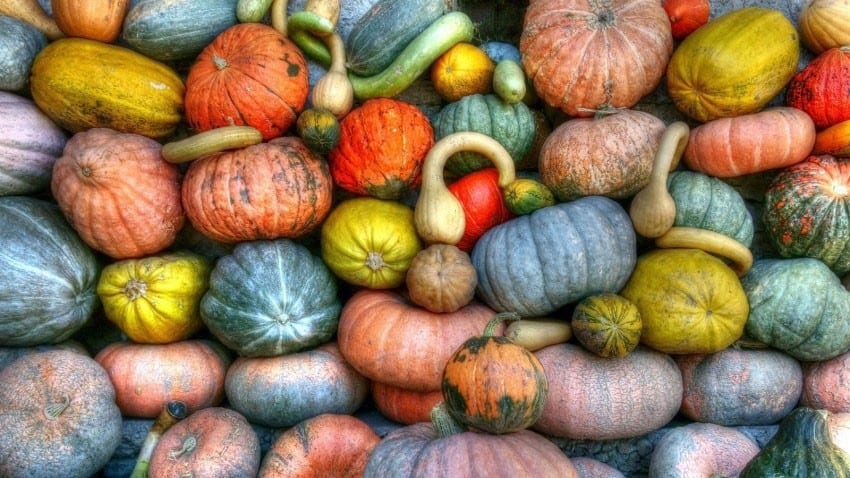
The use of regional and seasonal foods is a particularly strong factor in making your diet sustainable. Growing locally and seasonally emits far fewer pollutants because you don't need greenhouses, irradiation, or long transportation routes to produce the food.
In addition, the Fruit and vegetables ripen better, as they do not have to be harvested pre-ripened and then transported for a long time. Ripe fruits and vegetables therefore tend to contain more nutrients and naturally also have a better taste.
Anticipation is the greatest joy
From a psychological point of view, eating regional and seasonal foods also has an advantage: if you have gone without a food for a longer period of time, you appreciate the food much more again when it is in season. And the anticipation of your favorite vegetable is also greater than when it is available all year round. And if you don't want to go without your favorite vegetable or fruit for that long, you can always try to buy lots of other foods seasonally. Or you can make your favorite fruit last longer, you can for example Dry strawberries.
Tools for a seasonal diet
The absolute basic tool for seasonal shopping and cooking is a Seasonal calendar for fruits and vegetables. This shows you which fruits and vegetables are ripe at the moment. In the article seasonal shopping you can learn even more about it! With these tools you can easily bring sustainability into your kitchen and nutrition.
Self-sufficiency for sustainable nutrition
Ideal conditions for the most self-sufficient diet possible offers its own garden. Tomatoes, beans, or lettuce - everything can be planted yourself. But even if you don't have a garden, you can switch to self-sufficiency for a large part of your diet in the kitchen.
Self-sufficiency in the garden for a sustainable diet
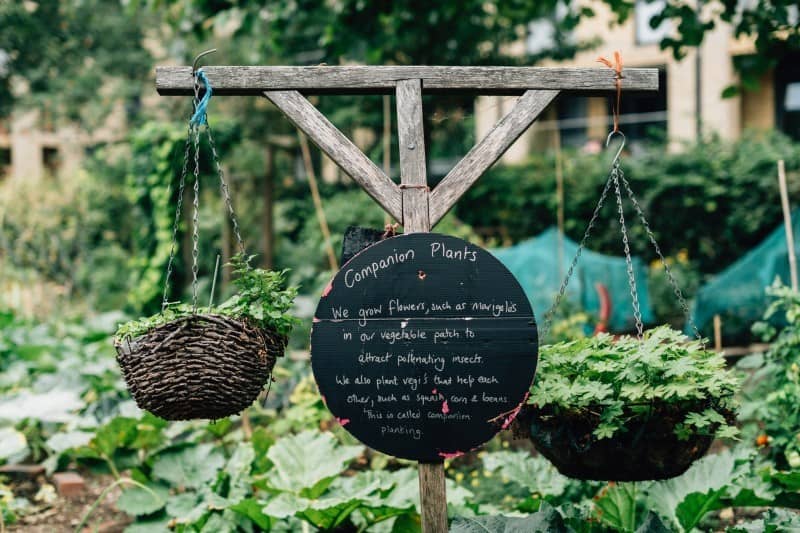
Having your own garden not only offers the opportunity to grow food, but is also a great hobby for many people. Your own vegetable patch is a great way to make your diet sustainable, regional and seasonal. Here you do not only do without unnecessary transport routes from the producer to the food market and pollutants, you even save money and the way from home to the supermarket. It doesn't get any more regional than this :-).
Because you usually don't have a huge heated greenhouse, you automatically produce greenhouse, you automatically produce food seasonally. Consequently you save on electricity costs and emit fewer pollutants than in commercial commercial food production. Your own garden is the epitome of seasonal seasonal nutrition and a great way to make your diet sustainable. your diet.
In the book "It can also be simple!: Gardening for self-supporters with little time and space". you'll find lots of tips on how to get a lot out of a little space.
Self-sufficiency in the kitchen
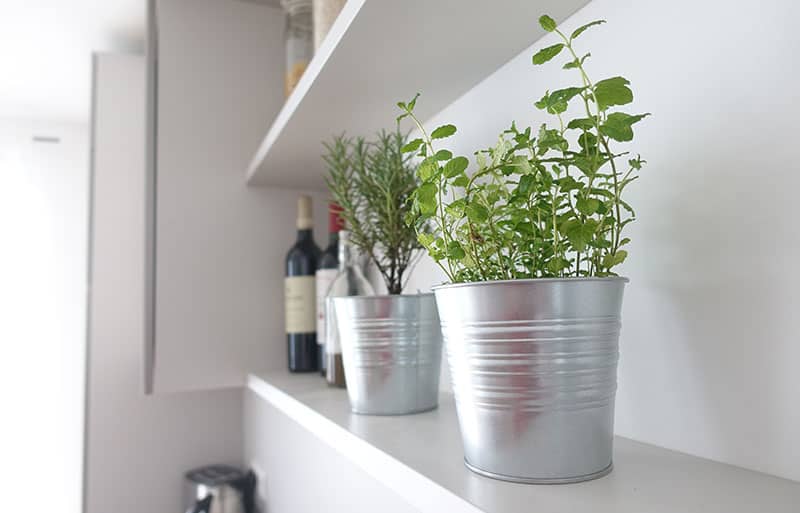
If you don't have your own garden, you can still grow your own herbs in the kitchen or a few tomatoes on the balcony. Your options are consequently a bit more limited than with your own garden. But with a little creativity and a nice, bright location for your vegetable pots, you can also grow food in your kitchen. Tomatoes, radishes and, of course, kitchen herbs such as rosemary or basil are particularly well suited for this. In the article about 10 healthy plants to grow yourself Christoph shows you which plants are particularly healthy for you and at the same time easy to grow in your own kitchen.
Organic and Demeter products promote more sustainable food production
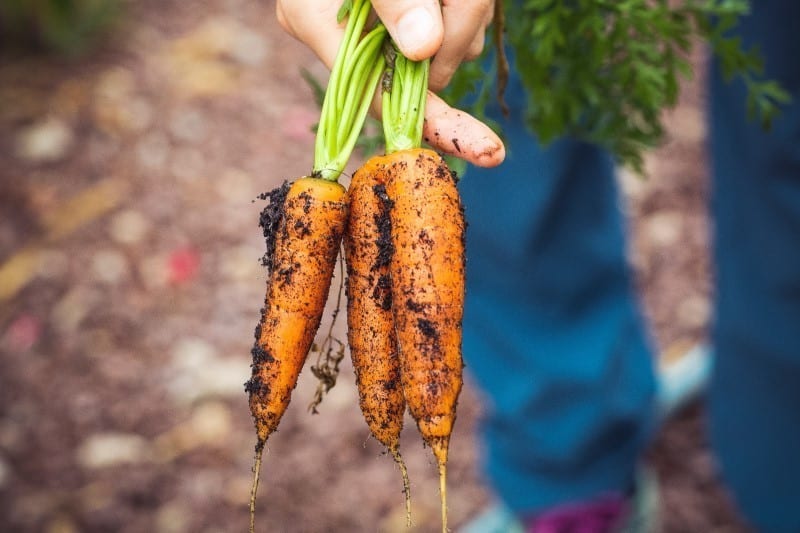
Again and again one also hears that organic or Demeter food is more ecological than conventionally produced food. food. But what exactly is behind this? Is organic really more sustainable? And what is the difference between organic and Demeter food?
Stricter guidelines apply in the production of organic food than in conventional food production. For example, attention is paid to lower soil pollution, a renunciation of genetic engineering and the preservation of soil fertility. In addition, pollutant emissions are lower than for conventional food. In addition to these ecological advantages, organic production also offers better livelihood security for producers. From a health point of view, the biggest advantage of organic products, in my opinion, is the reduction of harmful substances used. In fact, in organic production, only about 10 % of the additives used in conventional production may be used.
Make your diet sustainable with Demeter products
The Demeter seal is a special organic seal that has even stricter guidelines than the usual organic seal. The most important plus points for the Demeter seal compared to the EU organic seal are
- Total farm conversion, i.e. the entire farm becomes a demeter farm. With organic farms, a portion may still produce conventional produce food
- 100 % of the feed for the animals must be organic feed be; 66,66 % even Demeter fodder
- 50 % of the feed must come from the own farm
- Abandonment of the painful dehorning of cows
- Only a few and absolutely necessary additives
So organic and Demeter labels are great ways to bring more sustainability into your diet, as more attention is paid to ecological aspects in production.
Making nutrition sustainable with Fairtrade products

Fair Trade products, like organic or Demeter products, offer more sustainable structures for producers and developing countries. However, it should be noted that not all fair trade products are necessarily organic products, even though this is often the case. Many fair trade products offer the combination of organic products and fair prices for producers, which I personally find super.
Of course, I do not buy everything Fair Trade (is currently not even possible), but I think that you should buy at least part of your food Fair Trade. Especially with food, where bad production conditions prevail, one should attach importance to the purchase of fair trade products. Some examples would be bananas, coffee or coffee beans, chocolate or cocoa or cane sugar.
Most of you will be familiar with the Fairtrade seal from TransFair, but there are several other seals such as El Puente, fair+ from Gepa or the Rainforest Alliance seal. When you discover these seals on products, you support the producers and you can make your shopping behavior and your nutrition more sustainable.
Is vegan nutrition good for the environment?
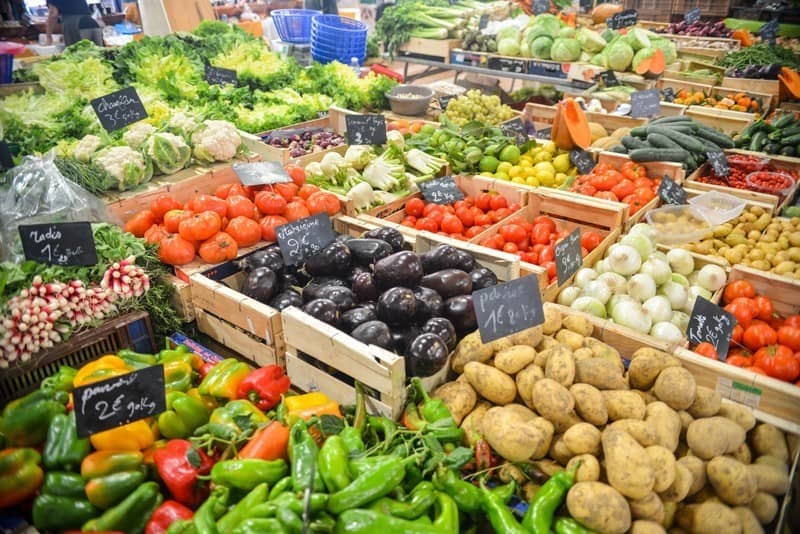
This point is particularly close to my heart because vegan diet not only has an impact on the environment, but also on your health your health and of course the living conditions of many animals. In this article I would like to focus on the environment and sustainability. focus. Is vegan nutrition healthy and sustainable?
On the subject Nutrition and climate I have written you a whole, detailed article. However, I would like to briefly summarize the most important factors on the topic here:
- Resource Input
- Emissions and greenhouse effect
- Agricultural land
- Water consumption (There are also vegan foods that require a lot of water in production, these are among others cocoa beans and avocado)
University of Oxford: Sustainable Nutrition Study
First, I want to introduce you to what is probably the most most comprehensive study on sustainable nutrition. The study from Oxford University in England was conducted by Joseph Poore and Thomas Nemecek. conducted. The two authors looked at the question of how we can make our diet sustainable. sustainable diet. In other words, exactly our current topic. In the study, data from 38,700 farms in 119 countries were analyzed over several years. farms in 119 countries over a period of several years and examined the environmental impacts of 40 food products (production, packaging, distribution). These 40 foods represent approximately 90 % of our food and are therefore very representative. representative.
First of all, the study result: There is no more effective contribution to environmental protection than the renunciation of animal products. Even doing without cars or air travel is less beneficial than omitting animal products from the diet. But why is that? Are animal products really that much worse for the environment?
Tip: In the contributions "Vegetarianism Statistics." and "Veganism Statistics" you will find facts and figures about vegan-vegetarian nutrition and its impact.
Animal products require a lot of cultivation area and have high pollutant emissions
According to the study, for meat and dairy products require 83 % of all agricultural land. animal products provide only 18 % of all calories in an average diet. an average diet. In addition, these 18 % of calories are responsible for 60 % of greenhouse gases generated produced by agriculture.
So if we were to stop consuming, and consequently producing, animal production of animal products, we would free up a large part of the agricultural land agricultural land and save a huge amount of greenhouse gases. greenhouse gases. The land that is freed up could allow the rainforest could recover and, in addition, endangered animal species could species could recover and increase their populations, as they would again have more would be available to them again. Both would have a very positive impact on the stability of our ecosystem.
Finally, a fun fact about the study: author Joseph Poore did not eat vegan at the beginning of the study, but already changed his diet during the study and now eats vegan. Here still the Link to study.₁ If you want to try it out, I recommend the article Vegan living - 11 tips for vegan start.
Eating sustainably by avoiding palm oil

For the cultivation of palm oil, many forests are cut downwhich are very important for our ecosystem. In addition, native animals lose their homes in the process. This particularly affects orangutans, Borneo pygmy elephants and Sumatran tigers. Palm oil products are usually highly processed and thus tend to be unhealthy. So three good reasons - environment, animals, health - speak against the consumption of palm oil products.
There is not much more to say on this point: if you want your diet to be healthy and sustainable, you should try to reduce the consumption of products with palm oil. Often there are very good alternatives without palm oil, just look left and right in the supermarket shelf and maybe you will find a sustainable alternative for your diet super fast. Of course it also helps the Refrain from substitute products.
Buying food plastic free
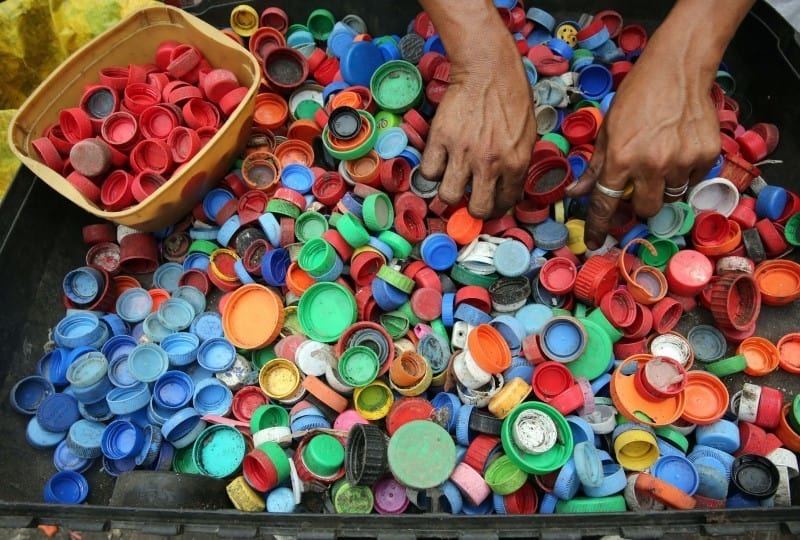
We at CareElite have discussed the plastic problem many times and written many articles about it - for example in the article Vegan and plastic free. Just recently, Christoph has also published his first Book plastic free for beginners written. The mass of plastic waste that we produce every day is incredibly large. If we continue as we are doing now, there could be three times as much plastic waste swimming in the oceans as fish by 2050. Another problem is the low recycling rates. On average in Europe, only about 30 % of plastic waste is recycled. The best way to get on top of plastic waste is therefore not to produce or consume any more plastic.
Through targeted, plastic free shopping of food, we can start with that. Simple ways to make your shopping sustainable include weekly markets, unpackaged grocery stores, or organic vegetable stores, which often offer unpackaged fruits and vegetables. To keep your potatoes from rattling around loose while you shop, I recommend a Fruit and vegetable bags. You buy the bag once and can use it again and again. Even traditional supermarkets offer more and more food in bulk.
Do it Yourself Ideas for Sustainable Food
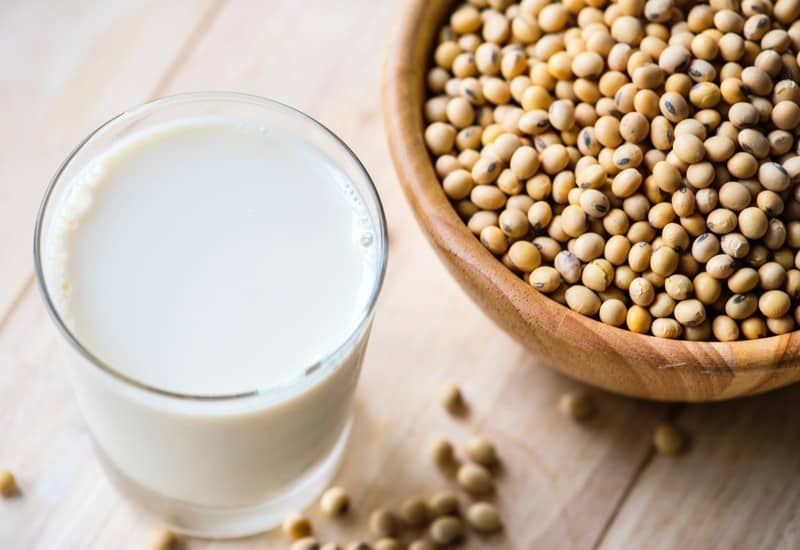
There are many foods that you can easily make yourself at home. Often, you can even save money by doing so. I have a list of DIY food posts here that can serve as inspiration to make your diet healthy and sustainable.
- Make macadamia milk yourself (also works with oats or other nuts).
- Make cashew cream yourself
- Make hummus yourself
- Make sugar free crunchy muesli yourself
- Make kale chips yourself
- Making celery salt yourself
Of course, this list is not exhaustive. There are many more DIY ways you can make your diet sustainable. I'll keep you updated here at CareElite.
Reduce food waste
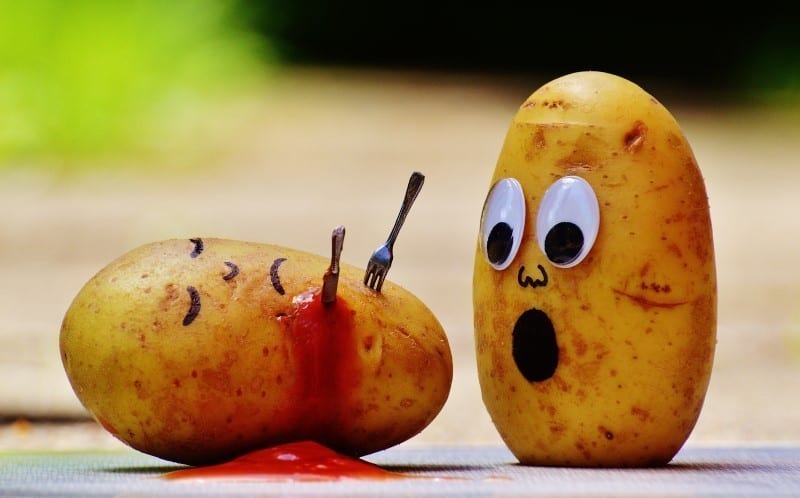
On the subject of Reduce food waste there are many ways to reach your goal. First of all, you should try to buy only as much as you really need. For single households, this is usually relatively easy, but when a second person comes into the household, it becomes more confusing.
Best before date or expiration date?
So what can you do to use food as efficiently as possible? First of all, you should know that the best before date is not the same as an expiration date. Food that has passed its best-before date can be (and usually is) still perfectly fine. It's not as if a switch flips when the best-before date expires and the food is no longer fit for consumption. Of course, you should still make sure that the food is still edible. So if you don't throw away all the food that's past its best-before date, you've already taken a big step toward reducing food waste and eating a little more sustainably than before.
In the article Food longer shelf life there are numerous tips and even more inspiration for you.
Making soups and smoothies
If your food is no longer as fresh as it used to be, there are there are several ways to deal with it. For overripe vegetables you can often make a soup in which you simply puree the vegetables. If the zucchini has already become a bit soft and you can no longer fry it to a nice crunchy, it can still cut a good figure in a soup. soup. The same principle applies to fruit - if you have overripe fruit that has has already softened a bit, you can just throw it into a smoothie. The overripe fruit usually tastes especially good and the soft consistency goes down in the blender. In addition, soups and smoothies can be real nutritional bombs and are therefore absolutely conducive to making your diet healthy and sustainable. sustainable.
Drying fruits and vegetables
To make fruit or vegetables last longer, for example before you go on vacation or if you have bought too much, you can dry them. I highly recommend using a dehydrator, because it really gets all the moisture out of the fruit or vegetables. Because in the oven, the probability that either something burns or residual moisture is still contained in the fruit / vegetables, too high. Especially if you still have a desire for delicious berries after the strawberry season, it is a good idea to buy a lot of strawberries during the season and then dry them. How this works exactly, I show you in my article to the Dry strawberries.
Foodsharing and donations to the food bank
Another option to use up food before you go on vacation, for example, is to Foodsharing. Here you can either donate your food in the traditional way or save food yourself that would otherwise have ended up in the trash.
Dispose of food properly with the worm bin
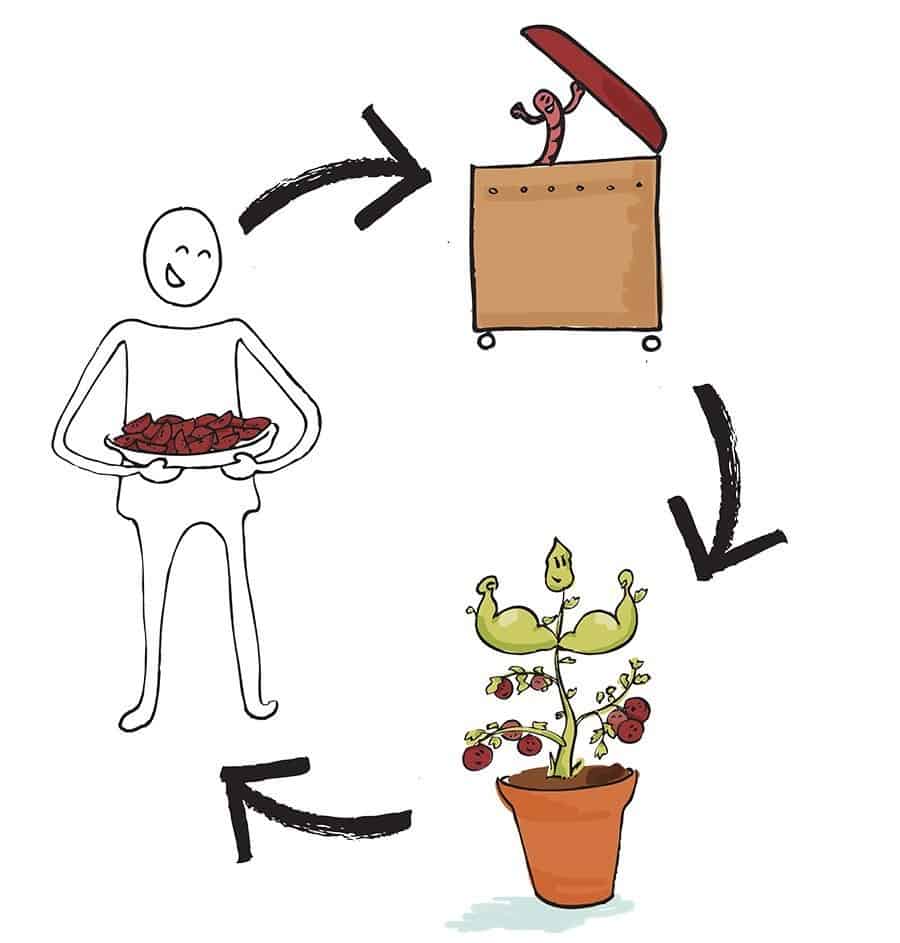
Fittingly, Christoph has written you an article called Proper waste separation in everyday life written. Of course, this topic also includes the proper disposal of organic food.
A particularly good way to dispose of food or organic waste more sustainably is the so-called worm bin. Worm bin? Yes, you heard - or read - correctly. I just recently spoke with Christoph again about the Wurmkiste, because he has the Wurmkiste at his home and is enthusiastic about it. With the Wurmkiste you can compost a large part of your organic waste in your home and thus reduce your own waste. No odors, no fruit flies. And how the whole thing works, you will learn in the contribution to the worm box.
Making nutrition sustainable - tips and tricks
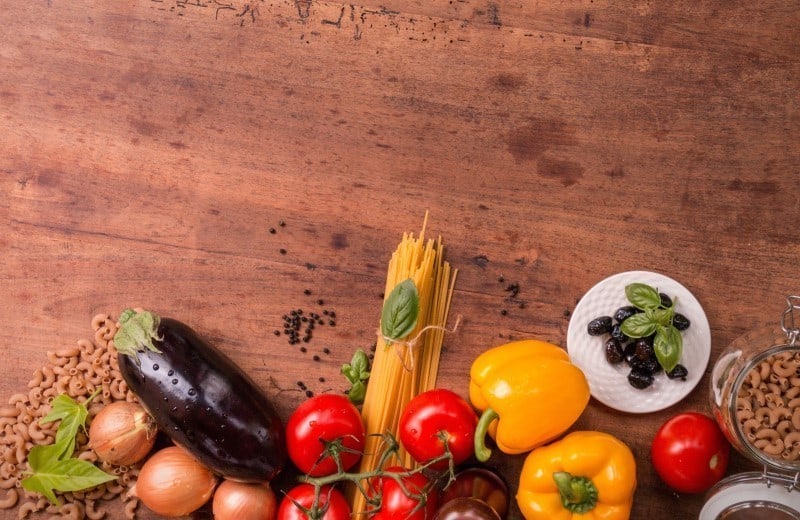
After all these points your head might be buzzing now your head a little bit and with all these ideas you don't know where to start. where to start. To make it easier for you to get started, I've put together some practical tips and tricks for sustainable nutrition that you can start with.
Replace exotic foods with local foods
One of the easiest tips and tricks for sustainable eating is to simply replace less sustainable foods with sustainable alternatives. Some exotic foods can be replaced almost one-to-one with a local food. Just buy:
- Flaxseed instead of chia seeds
- Couscous or bulgur instead of quinoa - if you want it to be gluten-free, you can use buckwheat or millet
- Blueberries instead of acai berries
- Strawberries instead of goji berries
- Parsnips instead of sweet potatoes
Of course, I am aware that these foods are not an exact replica of the other food in nutritional value, however, the mentioned foods are very similar, so you do not have to give up anything. In addition, you often save not only the environment, but also your wallet when buying these regional foods.
Replace processed with unprocessed food
It is often very easy to swap processed foods for unprocessed or less processed foods. The following foods are particularly easy to swap:
- Brown rice instead of white
- Whole wheat pasta instead of regular pasta
- Homemade baked potatoes instead of pre-fried fries (tip: parsnip "fries" from the oven are also very tasty).
- Mix your own muesli instead of using ready-made muesli with lots of sugar (Tip: check out my post Make sugar free crunchy muesli yourself)
- Tea or homemade lemonade instead of soft drinks
- Make your own dips instead of using ready-made dips (Tip: In my post Make hummus yourself, you will find many hummus recipes for dipping )
- Dried dates or apricots instead of candy
Of course, again, you can't swap every food one-for-one, but often the non-processed version serves the same purpose as the processed one. When I feel like something sweet, I eat a handful of dates. They're unprocessed because they're sun-dried, and what's more, they're sweet, healthy, and even packaged in a 10-kilo box to save a lot of plastic.
Eat whole foods instead of processed
The more you eat whole foods, the lower the level of processing in your food will automatically be. Avoiding highly processed foods has several advantages. First, environmentally, you save the energy for the processing process and additives needed. In addition, eliminating additives, high amounts of salt and sugar, and flavorings often found in processed products is also beneficial to you health-wise. Whole foods make your diet healthy and sustainable.
Of course, you can still eat processed foods such as pasta. But the focus should rather be on on whole foods. Personally, however, I make sure that I use whole grain pasta as often as possible, because it is less processed and still contain all the nutrients of the plant. Whole grain pasta, unlike white pasta, still contains Unlike white pasta still all the fiber and saturate thus also faster.
Tip: season whole foods correctly
My best tip for eating more "whole foods": a well-stocked spice cabinet. The taste of your dishes will seem less intense at first, since whole foods don't contain flavor enhancers, salt or sugar, and other aromas. To make your food taste really good now, you get to season properly. My spice cabinet is really always full and there is always something new. Just recently I bought the cookbook "vegan Indian cuisine" by Richa Hingle and many exotic spices have found their way into my spice cabinet. By the way, in "vegan Indian cuisine" there is not only strong spicing, but also strong emphasis on whole foods. If you are in the mood for Indian dishes, you can check out the Book about vegan Indian cuisine get
In the meantime, I attach great importance to low-processed food. Of course, the one or the other convenience product sneaks in with me too convenience product, but I make sure that something over 80-90 % of my food is low or not processed at all. In this way I combine two important factors for me personally: I keep my diet healthy and diet healthy and sustainable. At the same time, I don't drive myself crazy if I eat one or two more processed foods than usual. than usual. After all, sustainable nutrition is also about the fact that it should be enjoyable should be fun in the long term.
Swap animal products for vegan alternatives
As mentioned above, vegan products are often much more environmentally friendly than the comparable animal product. Dairy products in particular have a particularly large impact on the environment. A particularly easy step is to use plant-based drinks instead of cow's milk. Because these foods you can really exchange one to one.
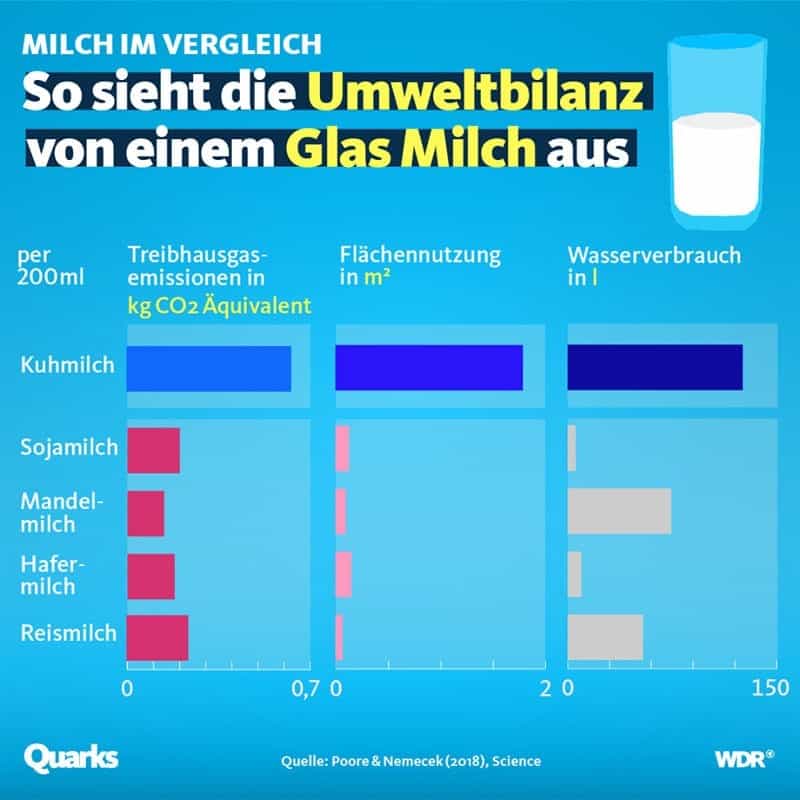
Tip: When it comes to plant-based drinks, you'll have to do some trial and error until you find one that tastes really good to you. However, I'm sure you'll find what you're looking for in the selection of soy, rice, coconut, almond, oat, cashew, hazelnut, spelt and flaxseed drinks. Have fun trying them out! If you feel like making your own nut milk, then check out my post Make macadamia milk yourself.
There are many other ways to avoid animal products. To replace meat, for example, you can rely on classic Meat substitutes or Legumes fall back.
Increase the number of veggie days you have per week
Staying on the topic of vegan food and nutrition, simply increase the number of vegan days in your weekly schedule. The vegan diet is a great way to protect both the environment and animals and to do something for your health. If you're interested in the connection between diet and climate, I again recommend you read my article on Nutrition and climate.
If you're unsure about how to eat a simple vegan diet, check out my post with numerous Vegan diet tips over, And if you're wondering where to get your protein on a vegan diet, you've come to the right place in my post aboutvegan protein supply correct.
Get seasonal calendar
As already mentioned above, the seasonal calendar is a absolute must-have for a regional and seasonal diet. With the seasonal calendar you know exactly which foods are ripe and have a short short transport route to your sustainable kitchen.
Start into self-sufficiency
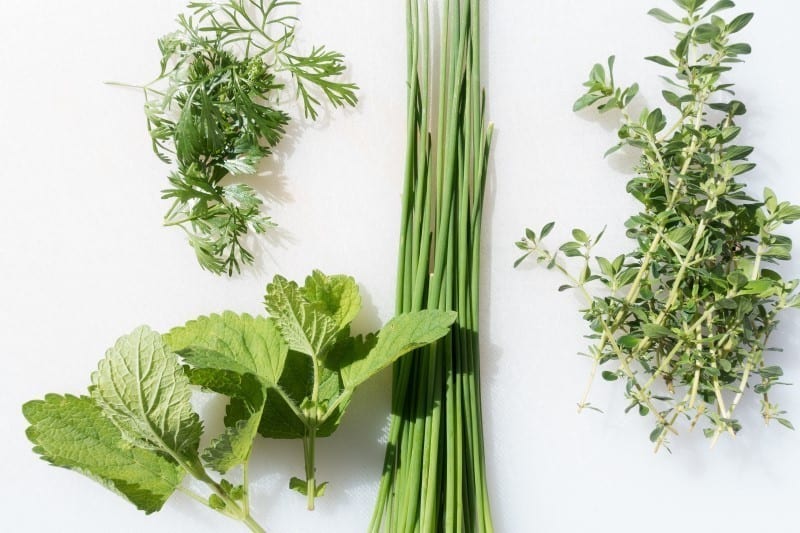
With enough space in the garden or kitchen, you can simply grow your favorite vegetables yourself. If you have a nice sunny spot on windowsill in the kitchen, you can grow your own kitchen herbs. grow them yourself. Not only will they taste great, but they'll always be an eye-catcher. an eye-catcher. If your sustainable diet tastes good and looks good, you will have benefited looks good, you benefit twice over.
Start step by step into sustainable nutrition
The whole set of different aspects of sustainable nutrition probably still seems overwhelming even after this short summary. Therefore, it is easiest for you to proceed step by step. So pick a point that particularly appeals to you and that you think is particularly easy to implement for you personally.
For the time being, it shouldn't matter how big an impact your decision has on the environment. It's much more important that you stay motivated in the long run. The path to a sustainable diet is more like a marathon than a sprint. You just have to steadily take one step at a time and get to your goal. But if you go full throttle at the beginning and try everything, you will probably lose motivation and strength along the way and not reach your goal.
For example, you can create a monthly calendar with intermediate goals and integrate a new aspect into your sustainable sustainable diet every month.
Create monthly calendar with intermediate goals
Here is a very simple example of how you can implement the tips and tricks for sustainable nutrition. You start in January increase the number of vegan days per week, e.g. to two days. days. In February, buy German winter vegetables such as kale and keep the two vegan days. Maintain the two vegan days per week from January. In March, try to plastic-reduced shopping, keep the two vegan days per week, and take a look at your and take a look at your seasonal calendar. In April you can take the next step and so on.
I have an exemplary and clear list for you, with which you can start to make your diet more sustainable. You can easily adapt and change the list as it suits you.
| January | 2 vegan days per week |
| February | buy seasonal german winter vegetables |
| March | Plastic reduced shopping |
| April | 3 vegan days per week |
| May | Grow kitchen herbs yourself |
| June | 4 vegan days per week |
| July | no food waste challenge: you try not to throw away any food for one month |
| August | Increase organic share |
| September | 5 vegan days per week |
| October | regional and seasonal Pumpkin recipes try out |
| November | you do not buy any products containing palm oil for one month |
| December | whole foods challenge: try to completely avoid processed products for one month |
Other possible ideas include:
- increasing the vegan days per week to 6 or 7 days
- exotic superfoods with regional superfoods exchange
- Acquire worm bin to dispose of food scraps to dispose ecologically
With this annual plan and the additional tips you can your kitchen and nutrition sustainably step by step. sustainable.
Don't forget the fun with sustainable nutrition
What is very important to me personally: always keep the fun here and don't get too attached to it. Yes, of course environmental protection an important topic, but environmental protection should be fun for you, so that you stay stay motivated in the long run. If you get too dogged about it, you'll just lose your motivation, you'll only lose motivation and eventually give up.
One tip for keeping it fun is to learn that cooking can be fun. That's why you should try new things, be creative, and most importantly, don't get too hung up on following recipes exactly. Just swap out the vegetables you don't like with your favorite. What's the big deal? Because of that, neither the pot will explode, nor the dish will taste terrible. In fact, you'll probably like it better than the original recipe, and you'll only cook it that way in the future.
Don't look at things too seriously!
In conclusion, don't be too hard on yourself: After all, no one is perfect and can boast a 100 % sustainable diet and cuisine. You'll find a bit of plastic everywhere, a few processed products, and hardly anyone manages to buy exclusively Fairtrade food. Every step in the right direction is important so you can finish "the sustainable food marathon".
Book recommendations for sustainable nutrition

I have already made some book recommendations for sustainable nutrition in the article. Therefore, you get here again a clear list, which books I can recommend to you on the subject.
- Cooking for the climate - Christoph's and my book on environmentally conscious nutrition.
- Plastic-free for beginners - Christoph's book about life without plastic.
- It can also be simple - gardening for self-supporters with little time by Otmar Diez.
- Vegan in Top Form - The Cookbook - 200 Plant-Based Recipes for Optimal Performance and Health by Brendan Brazier.
- Vegan in Topform: The vegan nutrition guide for top performance in sports and everyday life - The Thrive Diet of the famous Canadian triathlete - You can get the book here.
- Vegan Indian cuisine - Traditional and creative recipes to recreate.
These are my book recommendations to make your diet more sustainable. Have fun informing and reading!
Eating sustainably is straightforward, right?
Today you have received many helpful tips for an environmentally friendly and sustainable diet. This begins with the production of food and ends with the recycling of leftovers. In combination with a sensible shopping behavior and the avoidance of waste, a diet can be created in the simplest way in order to save a large part of the Environmental problems of our time to solve.
I hope you have fun changing your habits. As Hermann Hesse once said, there's magic in every new beginning. You are probably already motivated to the tips of your hair and want to get started - let's go!
If you have any questions or tips of your own, feel free to post a comment.
All the best,

P.S.: In the Blog about healthy food you will get many more tips from me. Learn, for example, how you can simply intermittent fasting can implement in everyday life. If you also want to dress sustainably, you can learn about the Leather sustainability read up.
References:
₁ J. Poore, T. Nemecek. Reducing food's environmental impacts through producers and consumers. Science 2018; 360(6392):987-992

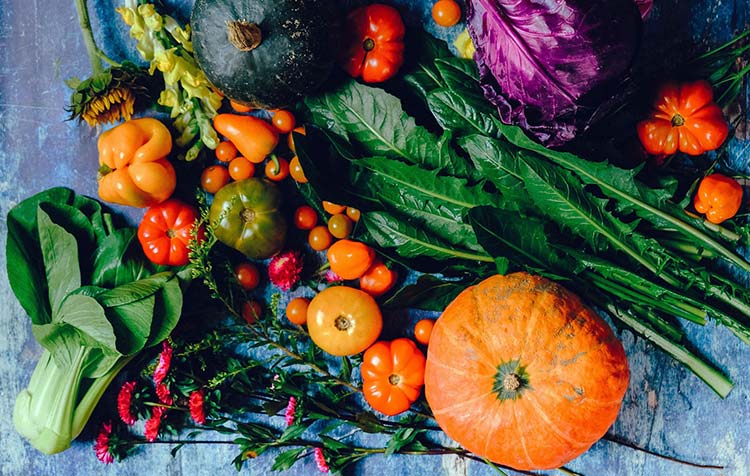

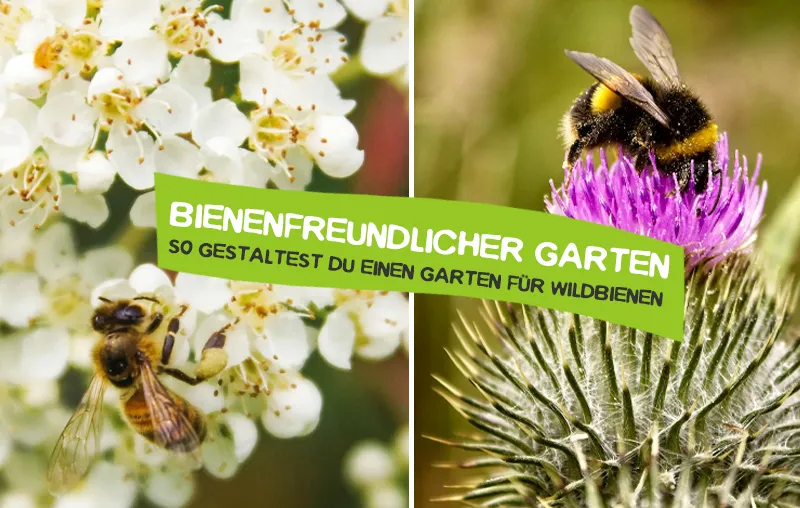

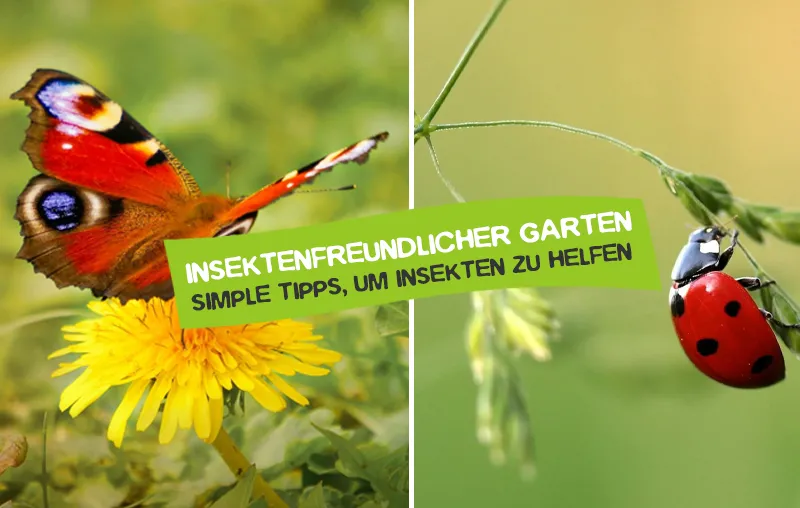
Sustainability means avoiding waste of resources. This can be taken to the extreme, or only partially.
Hi Peter, in my opinion, only the exploitation of animals and cruelty to animals are extreme. Simply leaving these things out of your everyday life and not supporting them is not extreme for me 🙂 But apart from that, it's not about perfection. It's about acting according to your own values and not building up your own lifestyle/diet at the expense of others.
Many greetings
Christoph
Very exciting article and really very informative. I find the conscious use of palm oil very important. It is also exciting here that if palm oil is simply replaced by coconut oil, that this is also not "the yellow of the egg". Because coconut palms are not as productive (i.e. more land would have to be used to produce the same yield). But I'm totally with you on the need to draw attention to all these issues. And that it is best to focus on foods that do not require these oils at all.
I came across your article by chance and I can agree with you 100%. I'm a big fan of the idea of self-sufficiency with seasonal produce. For the last 3 weeks, we've had wild garlic almost exclusively 😉
A healthy diet is not only good for the body, but also for the teeth. If you eat healthy food and avoid alcohol and cigarettes, you do your body a real favor.
Lg Michael
Thanks for the comment, Michael!
Wild garlic is of course currently absolutely seasonal and lends itself to a regional diet. You are absolutely right, a healthy diet and avoiding soft drinks, alcohol and cigarettes are excellent for the teeth.
Best regards
Julian
Comments are closed.